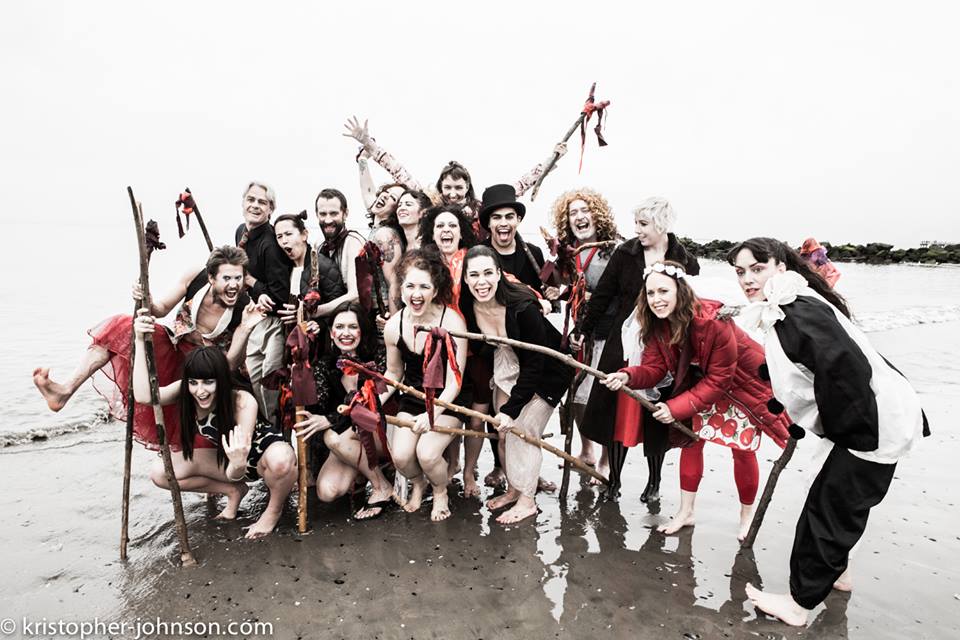I received some insightful and referenced comments from the dramaturgs on the LMDA listserv concerning the use of the N-word on stage and the struggle of our current production to present it. But interesting how even within the context of a discussion of the word itself, there seems to be a taboo against typing the full six-lettered word nigger onto the digital page, as if not only any utterance, but also any “publication” of the word would easily transcend the intent of the writer.
One dramaturg references a scholarly study, Randall Kennedy’s Nigger: The Strange Career of a Troublesome Word, abstracting a quote that highlights the power of the word and points to why it’s an apt candidate for presentation and study through theatre or other modes of public discourse.
I recently read a related short but insightful blog post referencing an e-mail exchange between cultural critic Greil Marcus and art journalist John Rockwell that provides additional insight to a zeitgeist that seems centered on the parsing of words.
Months back Hillary Clinton (or was it Bill, or another primary candidate?) attacked Barack Obama as a mere purveyor of words. Obama (borrowing, it turned out, from his friend Deval Patrick, governor of Massachusetts) responded that words do count, words mean something important. Without too great a stretch, I want to extrapolate that idea to arts journalism, and the need for same.
Recently I had an e-mail exchange with Greil Marcus, who was editing an entry on “Porgy and Bess” that I had written for a Harvard anthology. The last issue to be considered between us was whether in one sentence “African-Americans” or “blacks” worked better.
I finally decided I didn’t much care, ending with “Let’s move on to curing cancer, solving world peace, electing Obama and like that.” Greil replied: “Don’t you realize that the right choice between “blacks” and “African-Americans, whatever it is, is the SAME THING as curing cancer, solving world peace, and electing Obama? Where’s your sense of proportion?”
Point taken. Words do matter. Even the words, the futile scribblings, of arts critics. Take away words, take away critical commentary on the arts, and the arts lose something crucial to their creation and, especially, their reception. So think of that the next time you set out to solve world peace, arrogantly indifferent to mere words, or the arts.

One reply on “Staging the N-word”
So, Nick wanted me to add some of my comments from an email I sent on the dramaturgy list. And I did notice how I was unable to type the N-word…and after reading the email pasted below, you’ll get my personal reasons why I have an ingrained aversion to the very construction of those letters strung together.
(Note: I reference an email from someone on the list named Lila who was discussing use of the N-word as a “Method” actor, but had been caught up in the issue of the word and forgot that this was a Brechtian process.):
The quotes around the N-word are akin to the gestus, obviously. Those quotes are half of the instantaneous dialectical moment.
(Nick): “… even within the safe haven of “it’s the
character saying it, not me”, Roger as actor has been struggling to spit it out in some “natural” way.”
I have a question about the “safe haven of ‘it’s the character saying it, not me’” because half of the gestus is Roger’s entire emotional/sociopolitical response resulting in an attitude…obviously because, from what I understand of Brechtian acting, there isn’t a safe
haven except if the actor truly expresses his attitude towards the word — unless, of course, he is a racist in a roomful of intensely non-racist individuals…and his gestic quotes are colored by an attitude of racism.
But only knowing that this is a case of an actor struggling with delivery of an extremely loaded word within a Brechtian context, coming from Austria to
the U.S., I can only comment on that aspect. That part of the gestic moment would then be made up of Roger’s struggle, all of his emotional reactions faced, explored, and inventoried and then delivered forth in a natural way. So I am joining you in your statements below in response to Lila. That uncomfortable breath, pause, squirming…whatever Roger might feel…that I
would definitely recommend.
But the question still remains: you say that “the whole of the production would need to struggle with” the N-word out of the safe “box of naturalism”. I ask you: what’s going on at that moment? I think it’s a powerful
linguistic tool, violent as it is. What monad of everydayness is being struck at in that moment? I’m curious.
Because…it’s a word filled with hate for me. At 5, I asked my father what the word meant and the gentle man who never struck me had me across the room with a backhanded slap before I could finish my sentence. When I asked him what “fuck” meant, he smirked and said, “I’ll tell you when you get older. Just don’t say it in front of your mother.” But the N-word: I’d love to
know how it serves the play. Heck, I’d love to read the play. [Note: I have just been given a link to the play and will comment after I read it.]
So I guess if I were playing Roger’s part as a Brechtian actor, I’d flinch, cower, look down, guard as if I’m about to be struck… I actually have a hard time physically saying it… Interesting, huh?
….
I shall add more after I read the play. This is an exciting project all around and am very intrigued to learn more about this process.
Thank you,
Janet Bentley